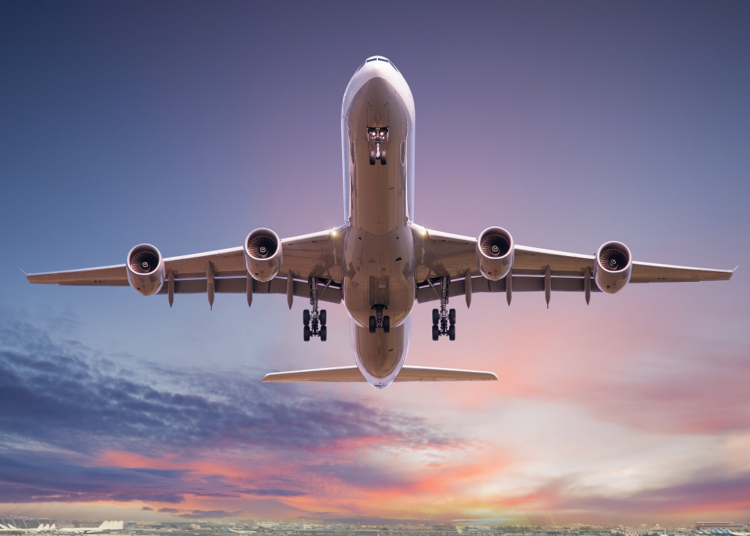Riding the turbulence rattling Nigeria’s aviation industry
By Gabriel Agbeja, News Agency of Nigeria (NAN)
Over the years, Nigeria’s aviation sector has shown resilience in the face of daunting challenges such as perennial scarcity of aviation fuel known in the industry as Jet A1 and high exchange rates and its multiplier effects on aircraft maintenance and ticket costs.
Others are, repatriation of funds owed to foreign airlines, safety compliance, infrastructure, human capacity development, inability to keep to flight schedules.
Among these challenges is what airline operators see as multiple taxation, which according to them, is frustrating the expansion and growth of the sector.
Aviation sector stakeholders, including workers and customers insist that the authorities must fix these challenges for the sector to hit its potential.
According to the International Air Transport Association (IATA), from the international scene alone, the air transport industry, including airlines and its supply chain, are estimated to contribute 600 million dollars to Nigeria’s GDP in Nigeria.
AITA says spending by foreign tourists supports a further 1.1 billion dollars for the country’s GDP, totalling to 1.7 billion dollars.
However, observers of developments in the sector say being Africa’s largest market for passenger flows with about 70 per cent, Nigeria’s Aviation sector has the potential to contribute more.
With what is considered low ticket rates (when the charges are converted to U.S. dollars), some private sector operators say the government should save the sector from more harm by moderating the multiple taxation they are subjected to.
The Chairman of United Nigeria Airlines, Prof. Obiora Okonkwo, says for Nigerians to enjoy lower air travel tickets therefore the Federal Government must step in to save the aviation sector by moderating the over 20 taxes paid on every ticket purchased by travellers.
Okonkwo said at a public event recently that the government should also address what he described as the astronomical rise in the foreign exchange regime.
“Operators are forced to buy spares and fix their aircraft in dollars even without increases in the cost of such spares abroad; the cost of doing so continues to rise due to the high exchange rate.
“Government must act fast to salvage the industry as the forex regime threatens to push up ticket prices further. Let there be a review of taxes on each air ticket as some of them are repetitions.
“Government should create an enabling environment for the aviation sector to survive, like access to single digit capital, reduction in all charges and taxes that impact negatively on air travel business,” he said.
Okonkwo, urged the government to show more interest in supporting the growth of the aviation sector, adding that the government was in a position to recoup its investment in the sector.
Similarly, General Manager of Azman Air, Mr Lawan Suleman, during an interview with the News Agency of Nigeria (NAN) pleaded with the Federal Government to reduce the taxes for the airlines to grow.
“The authorities are really unconcerned about the high cost of ticket prices because they charge higher taxes, which is why they don’t care about how airlines are changing the customers.
“To be sincere that the airlines cannot do anything about the continued rise of the airfare. The cause of the problems is the exchange. Airlines will need to purchase spare parts in foreign currency.
“If the government can help the airlines with proper control of foreign currency, the cost of tickets can be reduced to enable customers to enjoy better prices,” he said.
Meanwhile, retired Group Capt. John Ojikutu, a former Military Commander, Murtala Muhammed International Airport, Lagos said that as long as the Naira kept rising against the dollar and the nation kept importing fuel, there would be no respite for air travellers.
According to him, some of the airlines have poor business plans for sustaining their operations believing that ground and air support services were free.
He said such airlines did not have adequate knowledge of the routes and passenger availability on the routes to facilitate profit margins.
“The increase of airfares did not start today. It started way back in the mid 90s, first with the increase of the naira against the dollar to N40/$.
“ Not many people would remember that the air fare to Abuja in the mid 90s was between N3,800 and N4,000 for about an hour flight.
“Remember too that fuel was being refined in Nigeria and not imported with irrational subsidies as we are doing today“ he said.
Ojikutu frowned at the move by the Nigerian Airspace Management Agency (NAMA) to increase its navigational charges on the domestic Airlines.
“ It should rather challenge the NCAA for the shortfalls in its 23 per cent shares of the 5 per cent charges on Ticket Sales Charges (TSC), Cargo Sales Charges (CSC) and Chartered Flights.
“What NAMA is doing is what many would call double charges. I have written to the NASS (National Assembly) before the review of the Civil Aviation Act of 2022 that the shares of the NCAA be reduced from 53 per cent to 40 per cent and NAMA shares be increased from 23 per cent to 35 per cent.
Mr Festus Keyamo, the Minister of Aviation and Aerospace Development, says issues within the sector including financial instability, regulatory challenges, and operational inefficiencies are being addressed by the Federal Government.
Speaking at a conference recently hosted by the League of Airport and Aviation Correspondents in Lagos, Kayomo said some airlines even obtained Air Operating Certificates (AOCs) but never launched their services.
The minister inferred that the inability of these airlines to remain viable underscored the urgent need for comprehensive reforms to ensure the long-term health and sustainability of Nigeria’s aviation industry.
The minister also listed lack of flag carriers, inadequate infrastructure, aircraft shortage, limited international connectivity and insurance challenges as parts of a setback militating against the sector.
Keyamo said the Federal Government would intensify efforts to enhance the local airlines` capacities to be efficient, effective in their operations.
He said the nation ought to have flag carriers within aviation who will make the country proud in the absence of national carriers.
He stated that such flag carriers would service the nation`s reciprocal rights under all the different Bilateral Aviation Safety Agreements (BASAs) the nation had.
“ In fact, of course, we need to enhance capacity in the industry, capacity for development. Train and retrain our technical people within the industry.
“Also ensuring that we raise their standards to global standards; and of course, to boost their revenue optimisation.
“Without imposing extra taxes on people, let us just optimise revenue. That is why I took a memo to the council, “ he said.
The minister said the government was also working toward ensuring that the issue of insurance was based in the local market.
On the establishment of Maintenance, Repair Overhauls (MROs), the minister said the government was taking steps through Public -Private Partnership (PPP) to achieve that.
“We need to bring in the MROs. People are already talking with us. I don’t want to let the cat out of the bag. Very soon, we are going to call for partnership.
“That is the only way to go. And I think we need to call in people with money. So, for our local businessmen, our banks, financial institutions, financiers, don’t say that foreigners are coming to take your business away.
If the right environment is provided for local airlines the cost of operations would reduce resulting in drop in airfares; there would be more passenger satisfaction.
It would also mean that more people can afford air transportation in a country where it is seen as a luxury. It would have a spill-over effect on infrastructure development and make the nation’s aviation sector to become globally competitive. (NANFeatures)
** If used please credit the writer and News Agency of Nigeria.
Published By
-
Editor/Assistant Chief Correspondent,
FCT Correspondent,
NAN Abuja.
Has also recently published
 General NewsJuly 5, 2025Group lauds Tinubu for creating South-West Development Commission
General NewsJuly 5, 2025Group lauds Tinubu for creating South-West Development Commission Economy/BusinessJuly 5, 2025Katsina partners PEBEC to accelerate business enabling reforms
Economy/BusinessJuly 5, 2025Katsina partners PEBEC to accelerate business enabling reforms HealthJuly 4, 2025Wives of traditional rulers advocate stronger traditional justice system in FCT
HealthJuly 4, 2025Wives of traditional rulers advocate stronger traditional justice system in FCT MetroJuly 4, 2025Days of empty promises, abandoned projects over in FCT – Tinubu
MetroJuly 4, 2025Days of empty promises, abandoned projects over in FCT – Tinubu





